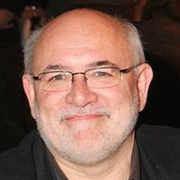event
Discovering Novel Bacterial-Biofilm-Resistant Materials for the Prevention of Medical-Device-Associated Infections
Primary tabs
A School of Biological Sciences Seminar by Paul Williams, Professor of Microbiology, University of Nottingham
EDITOR'S NOTE: This announcement first appeared in the School of Biological Sciences website. For updates, check the original posting.
Abstract
Healthcare-associated infections are the most frequent adverse events in hospitals. Many such infections involve implanted medical devices such as catheters. When bacteria attach to these devices, they form biofilms, which are much more tolerant to antibiotics and host defenses than individual bacterial cells.
Most strategies to reduce device-associated infections have focused on coating devices with antimicrobials, such as silver or antibiotics. Greater success could be achieved by using materials exhibiting intrinsic resistance to bacterial attachment. Such materials would avoid problems associated with antimicrobial impregnation, including leaching and resistance.
To address this "materials gap," we have developed a high-throughput combinatorial microarray methodology that has enabled us to screen thousands of homo- and co-polymers for new biofilm-resistant materials. The "hits" represent a class of resistant materials that could not have been predicted from our current understanding of bacteria-surface interactions. Consequently we are exploring structure-function relationships from both the material surface and bacterial-sensing perspectives.
ABOUT THE SPEAKER
Paul Williams is Professor of Molecular Microbiology in the School of Life Sciences, Faculty of Medicine and Health Sciences at the University of Nottingham In 1996, he was appointed to the directorship of the Institute of Infection, Immunity and Inflammation. In 2008, he became head of the School of Molecular Medical Sciences, University of Nottingham.
His research interests focus primarily on the regulation of gene expression in bacteria through cell-cell communication (quorum sensing) and the development of new antibacterial agents and bacterial-attachment-resistant polymers.
Williams is a member of the MRC Infection and Immunity board, a member of the EU Joint Programming Initiative in Antimicrobial Resistance, and a Wellcome Trust senior investigator, He is co-director of the new Wellcome Trust Ph.D. Training Programme in Antimicrobials and Antimicrobial Resistance, which is jointly shared by the University of Nottingham and University of Birmingham.
Status
- Workflow status: Published
- Created by: A. Maureen Rouhi
- Created: 09/29/2017
- Modified By: A. Maureen Rouhi
- Modified: 09/29/2017
Categories
Keywords
Target Audience

